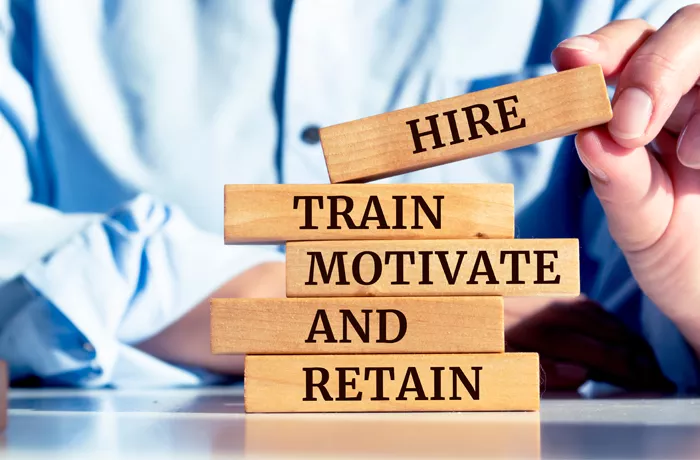Employee rewards: Your ultimate guide

We’re publishing this blog at a time of year when employee rewards are on every employer’s mind. Whether it’s how to deliver the end-of-year bonus or Christmas gift, the festive season always brings a spike in voucher or gift card orders. The concept of rewarding employees isn’t seasonal; it’s part of a broader employee rewards strategy, and it requires a well-planned approach to get it right. Read on for your ultimate guide to employee rewards.
Content:
What is the best reward for an employee?
How often should rewards be given?
What are employee reward schemes?
How can rewards motivate employees to perform?
How non-financial rewards motivate employees
Good examples of rewards and companies that do it well
In a hurry? Here are the top three things to know from our ultimate guide to employee rewards.
1. Employee rewards are about appreciation and motivation, not just money: Rewards are distinct from salary or contracted bonuses. They’re a way to recognise effort, celebrate success, and reinforce desired behaviours. While financial rewards are valued, offering choice (e.g. vouchers, time off, or development opportunities) ensures inclusivity and personal relevance, motivating a wider range of employees.
2. Timely, consistent, and transparent rewards drive impact. Rewards should be integrated into your wider recognition strategy: In-the-moment rewards are most powerful because they connect directly to the behaviour or action you're recognising. A clear employee reward scheme ensures fairness, transparency, and alignment across teams so employees understand what actions you value and how to earn rewards.
3. Well-designed reward programmes strengthen engagement, retention, and culture: Recognition and rewards boost performance and loyalty. 66% of employees would leave if they don’t feel appreciated. Companies that succeed combine values-based recognition (celebrating how results are achieved) with regular, peer-to-peer appreciation and occasional formal awards. This approach fosters inclusion, motivation, and a strong company culture.
Got time to stick around? Let's dive a little deeper.
It’s not the first time we’ve tackled the topic of employee rewards because they play a significant role in employee engagement, motivation, and retention. If you’re looking for Christmas-specific content, read our blog, ‘Employee Christmas gifts & rewards: Please them all this festive season’.
If sustainable employee rewards programmes are high on your agenda, we have you covered -- Sustainability in Business: Eco-Friendly Employee Rewards.
Here, we’re going back to basics, tackling the questions we know you’re asking – because Google told us.
What is an employee reward?
An employee reward is essentially anything you gift your employee as part of an award or celebration – a way to show appreciation. Similar to employee benefits, rewards are not part of salary expectations or even contracted bonuses. Rewarding employees is that extra step you implement as part your recognition programme. A way to surprise and delight, encourage high performance and nurture the behaviours you want to see repeated.
What is the best reward for an employee?
There are many different opinions on what the best reward for an employee is, as people will have varying perspectives. Some will say financial rewards are best – many would agree, but there’s certainly a place for non-financial employee rewards.
Our response to this question would be to give the gift of choice. People are driven by different motivators, so there isn’t always one reward that will suit all. Unless you’re giving them a choice. That choice can be in terms of a Voucher they can choose to redeem with a selection of brands, or it could be that you allow them to exchange a financial gift for extra time off.
How often should rewards be given?
Employee rewards should be an integral part of your overarching recognition scheme. While employees may expect them at the end of the year, ad hoc, in-the-moment rewards are very powerful.
It means more when recognition and reward are timely -- when you show the appreciation when the event occurs, not months later. Delayed rewards don’t have the same impact, so ensure your employee rewards platform gives you the flexibility to deliver in-the-moment, manager-led rewards.

What are employee reward schemes?
Employee reward schemes are a structured approach to recognising employees. An employee rewards scheme enables consistency, transparency, and fairness in how you issue employee rewards.
With a scheme, you can define behaviours and achievements that merit rewards, specifying a parameter for reward values for each, to ensure managers are aligned and helping to bring the strategy to life.
While we champion in-the-moment rewards, without a scheme or strategy in place, you’re at risk of employees being confused about what they need to do to receive a reward. A scheme also ensures you’re consistent, transparent, and inclusive.
How can rewards motivate employees to perform?
Rewards motivate employees due to the psychology of human nature. If we do a good job, go above and beyond or land a big win and receive recognition and reward, we’re more likely to try to repeat the action. While people will continue to perform without recognition for a while, 66% would quit if they didn’t feel appreciated.
We frequently cover topics on performance and motivation, as they are essential to employers. People power your business, and how they perform affects your bottom line.
Here are a few blogs that delve into rewards and motivation deeper:
- How do you motivate employees? 7 top tips to implement today
- Harness the Power of Motivation with Maslow, Herzberg, and Pink
You can also learn more in our blog, ‘Building a sustainable, future-focused, high-performance culture’.
How non-financial rewards motivate employees
We’ve referenced non-financial rewards already, and your can read further on the topic in our blog, ‘11 Examples of Non-Financial Rewards for Employees’. In that article, we explore how Maslow’s theories of motivation help us understand why people are motivated in different ways. The eleven examples provided include time off, career development, team activities, volunteering opportunities, and more.
It ultimately comes down to the question of what makes the best employee reward. Our answer to this was ‘choice’, and for some employees, what they want the most isn’t money.

Good examples of rewards and companies that do it well
We’ll take this opportunity to share how we reward our colleagues here at Pluxee UK. If we're here telling you how to do it, it's only fair that we show how we practice what we preach, right?
We use the recognition suite within our Pluxee Employee Experience platform. It’s the hub of our recognition programme, where colleagues can send messages of appreciation to each other. We celebrate all wins – the large and small because we have a values-based recognition programme. Results matter, of course, but values-based, peer-to-peer employee rewards schemes make recognition more inclusive.
We begin with messages of appreciation, then we provide our people leaders with a rewards budget that they can distribute for the recognition that truly stands out. It’s all about those in-the-moment rewards and the power of instant gratification.
A wider committee reviews every nomination, and then at the end of each month, they select four individual winners -- one for each value -- with a fifth award given to a nominated team. Each winner receives ROAR points in their rewards wallet, which they can redeem with a retailer of their choice, converting them to an eVoucher that they can spend how they choose.
To make it even more special, towards the end of the year, we create space for a few more award categories, driving those messages of appreciation and peer-to-peer recognition to another level, building up to an annual awards ceremony.
That's not all. Throughout the year, we'll run campaigns to drive specific actions or behaviours, randomly matching winners with prizes, which could be anything from a physical gift to a whole day off work!
Wrapping up employee rewards: Your ultimate guide
We went back to basics with this blog because our research found that many UK employers are asking these questions. From what an employee reward is to why they matter, and the different ways you can reward your people, we've tackled them all. We’ve also included links to other blogs that focus deeper on more specific topics.
To learn more about the role rewards play in employee motivation and retention, download your free copy of our People Strategy Guide.
FAQ
How can you reward your employees?
You can reward your employees in various ways, including both monetary and non-monetary incentives. Discover what matters to them most and give them something they’ll truly value.
Are employee rewards taxable?
Depending on the amount of the employee reward and how you issue it, there may be tax implications. Seek clarity in your business before rolling out your employee rewards programme.








